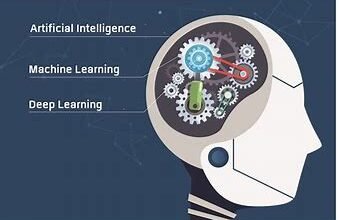5 Essential Skills Every QA Engineer Should Have

Software testing is a complex and challenging procedure. QA engineers are expected to ensure that the software meets all performance criteria and requirements. 2.4 million people work as Software Testers in the U. S. alone. The average salary for a Test Engineer in the United States is $82,000. The software testing industry is expected to grow at a 17.7 per cent CAGR from $18.9 billion in 2018 to $36.8 billion by 2023.
Since 2010, QA engineers have increased by more than 50%. As a result, more than 7 million QA Professionals are currently employed worldwide, with a median yearly salary of $77,000 and an annual growth of 24%.
Qualifications Required for This Job Role
Software testing is examining software to verify that it complies with its requirements. QA engineers also undertake programme testing to guarantee that the software is bug-free and ready. Consequently, the quality assurance team must understand computer programming fundamentals, programming languages, and software engineering processes. They should also be acquainted with automated testing tools like Selenium, Appium, and Cucumber.
Prerequisites to become a QA Engineer vary depending on the company and industry. Nevertheless, they frequently require a bachelor’s degree in computer science or technology, coding knowledge, and practical learning experience with different programming tools. They should also be able to code and debug. They must also be capable of working with various computer systems, databases, and technologies.
These qualifications should be enough to help you land your dream job as a QA engineer:
- Bachelor’s degree in computer science or related field
- Experience with software programming
- Experience working with many programming languages
- Experience conducting tests on web applications, mobile apps, desktop apps, databases, and APIs
- Experience with automation tools such as Selenium
Job Role and Responsibilities of a QA Engineer
A QA engineer is a software tester who tests and verifies the software before it is released. They are responsible for finding bugs in the software, documenting them and writing test cases. QA engineers are crucial to the success of any company that has a complex software product. This job role can vary from testing small programs to large scale enterprise applications. QA engineers work in an agile environment where they need to be able to work on multiple projects simultaneously while also maintaining a high level of quality assurance.
QA engineers are responsible for finding and eliminating defects in software. In addition, they work with developers to ensure that the software is fully functional and meets all quality standards. The job role of a QA engineer is becoming more complex as companies are moving towards automation and digitalisation. They have to be able to deal with the increasing volume of data, analyse it, and identify bugs promptly.
A few primary responsibilities of QA engineers are:
- Assessing the quality of the software
- Troubleshooting software issues
- Writing test plans and test cases
Skills Required to be a QA Engineer
Excellent mathematical skills, critical reasoning, and problem-solving ability are required of QA engineers. They must be able to discern software faults and problems. They must also be familiar with issues tracking, performance monitoring, source code repositories, automated testing frameworks, etc. Quality assurance experts are the bedrock of software development. These professionals are in charge of ensuring the quality of their products.
Here are some of the essential skills a QA engineer requires –
-
Critical thinking
There are many reasons why QA engineers need to have critical thinking skills. One of them is that they may be the only ones who can prevent bugs from getting past the testing phase. Another reason is that they help resolve issues that are not yet known.
Critical thinking skills are essential because they help identify potential issues and prevent them from happening. For example, QA engineers need to be able to identify the problems before software testing begins to make sure that everything goes smoothly throughout the process.
-
Problem-solving abilities
QA engineers are the bridge between the software engineering team and the end-users. Therefore, they need to test software efficiently without compromising quality and usability. In addition, QA engineers need to have problem-solving abilities because they need to be able to identify problems in a program, determine why it happens, and find solutions. This is where their problem-solving skills come into play.
The QA engineer needs to understand how the software works so that they can spot potential issues with it. This includes understanding how different parts of the program work together and what they might impact each other in the future.
-
Mathematics
QA engineers need to be able to work with mathematics to test software. This is because software testing is a mathematical process. It involves calculus, statistics, and probability theory. In addition, software testing is finding and correcting defects in software.
Software testing is a mathematical process, and QA engineers need to have strong math skills to perform it well. Software testing requires the use of calculus, statistics, and probability theory.
-
Knowledge of programming languages
QA engineers need to know programming languages to test software more efficiently and effectively. This is because they need to understand the code they are trying and be able to use it themselves. This will help them identify bugs and errors in the software faster.
QA engineers need to know programming languages to help them quickly identify bugs and errors in software. It also helps them understand the code they are testing and ensure that it works correctly.
-
Knowledge of debugging tools
Software testing is a complex and challenging job. However, QA engineers need to know about debugging tools because they are the ones who usually handle the bugs that exist in software. The role of software testers is to find bugs in software before it is released to customers and make sure that it is working as intended.
Knowing debugging tools can help their team identify and fix issues faster. QA engineers should learn about different debugging tools for other platforms to be more efficient in their work. However, they should also use these tools effectively by knowing what each tool does and how it works.
How and where to Learn?
Software testing is a profession that requires extensive knowledge of software engineering and programming. However, many resources can help you learn software testing without spending years in school or getting a degree. There are many books on software testing that you can read to understand the basics of the profession and the different types of testing methods. There are also online resources like blogs, podcasts, and videos that will help you learn more about software testing.
Here are some options for you to consider based on your preferences:
- Self-Guided Websites and Courses
- Books
- Virtual Classes
- Non-Virtual Classes
- Starting Your Projects
LearnVern offers a free online software testing tutorial in which you will learn how to test software using real-life scenarios. The course is intended for novices with no previous experience with the testing process or bug hunting and those who want to refresh their knowledge.
The LearnVern team uses this teaching style through engaging scenarios and case studies to help students grasp anything from software testing fundamentals to advanced techniques like fuzzing and security testing. Furthermore, LearnVern offers step-by-step guidance to assist you in learning what is necessary for developing test cases and running tests.
Conclusion
QA engineers have a pretty wide range of job options in the software sector. They are capable of collaborating with software businesses, IT consulting firms, and government organisations. Before going live in production, the testing process assures that the product fulfils its quality criteria. QA engineers are in charge of detecting defects and flaws in any specific product or service before being released.
Quality assurance engineers are in great demand since they are essential to software development. They provide a diverse range of job options, including product testing, automation, quality assurance, and product development. By 2026, the job market for QA engineers is predicted to rise at an annual rate of 8%.




